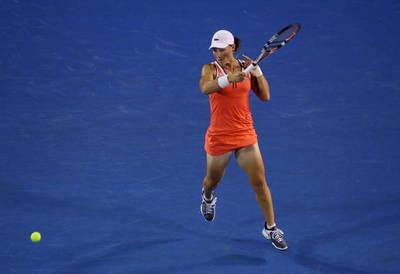How to find a
sponsor
for your tennis career
"I need to find a sponsor," is what I hear most from my players. These are both players who never set foot onto our tennis tournament tours, and also those who are with us. Every player with any sense of his own destiny, and his own capabilities, will know that he can only do it with help.
This is a sad state of affairs. What happens generally is that the parents are able to sponsor you as long as the tennis activity remains close to them. They can see what is going on, and they know that the money sums are manageable. It is often during this period that the money worries start to set in. It could be the desire to play a series of tournaments further away; it could be a problem of equipment; it could be a problem of coaching. The travel, the coaching, and the resulting accommodation costs start to become unmanageable sums. The parents will often have no choice but to say no.

Can't find a sponsor
In many cases this may mean the end of a player's real development. Without access to the right training and coaching, or being able to prove it on a tournament tour, the player will inevitably stagnate.
What is really sad is that in between times the player himself has committed himself to tennis, and he has made his own research as to how much money his career needs thrown at it. He may also know it's no good asking his parents. Most parents simply don't have that sort of money available over a three or four year period, which is what you'd like to give yourself. Sponsoring someone for a month is not interesting for anyone. Creating a three or four year project is the only way to go. Enrolment at an academy will be costing at least $50,000/year. You can assume that if you want to find a sponsor, you will be asking him for annual sums of around $50,000/year. This is a frightening sum of money for any business, big or small.
I remember meeting a girl on the WTA circuit many years ago, who had managed to get together $10,000 a year for a three year period. This was from a business colleague of her father, who had a firm who he thought would profit from more write-ups in the local newspaper. £10,000 was a sum of money that the player thought was not too much to ask, but in fact, for neither of them did it achieve their object. The player herself had spent this $10,000 in a few months. What does she now do for the rest of the year? She is completely stuck. The sponsor expects a year-round return for his £10,000, and after month four the player effectively went into hibernation. She couldn't even afford a tin of balls any more.

Create trust
To find a sponsor was brought home to me again this week, because I was reminded of how easy this can be sometimes.
One of our players had been pursuing one of his hobbies, which was studying the battlefields of the First World War. He was a regular trawler of websites, and found himself on quite an obscure website, seemingly written by a non-academic, but with a lot of original material. The player got in touch over the web pages, and the creator of the web pages was a lawyer. He was not a professional historian at all. History of the First World War was just his hobby. One thing led to another. They met, and then tennis came up. The lawyer had no tennis culture whatsoever. In fact, he demonstrated a real reluctance to separate himself from his money even for food or his travelling. He just liked living sparingly.
So you then think that people who don't like spending money are never going to spend money on anything at any time. There, you are wrong. Where a person will prefer to pay £2 for a coffee instead of £2,50, even when the coffee tastes worse, you put money onto a different level, and you see a new attitude.
Of course this guy is a lawyer. He's also a successful lawyer, so he earns top end money. He doesn't have companies to represent, so he may not be interested in anything to do with advertising. So how do you get a person like this to part with $50,000/ year?
The key is the relationship. Our lawyer friend was so thrilled to have the enthusiasm of a young person, that he was ready to listen to any stories about how he was able to support this person. His real interest is that this relationship, this same love of anything to do with the First World War battlefields, was to be continued.
That was exactly what panned out. Despite not understanding the real ins and outs of tournament tennis, even after many explanations, he understood that the education of a young person, whatever the training, is always an expensive affair.
To find a sponsor, maybe the most important element is to be ready to be trusted. If someone gives you some money, it is not because he has any guarantees of returns. It is because he trusts that you need the money, and he trusts you to spend that wisely. The only return the sponsor may ever get, is that, for a certain period, he has a two-way trust with another person. When you realise how rare that is in our world, maybe that should be the main strategy of the player. Be ready to create trust.
